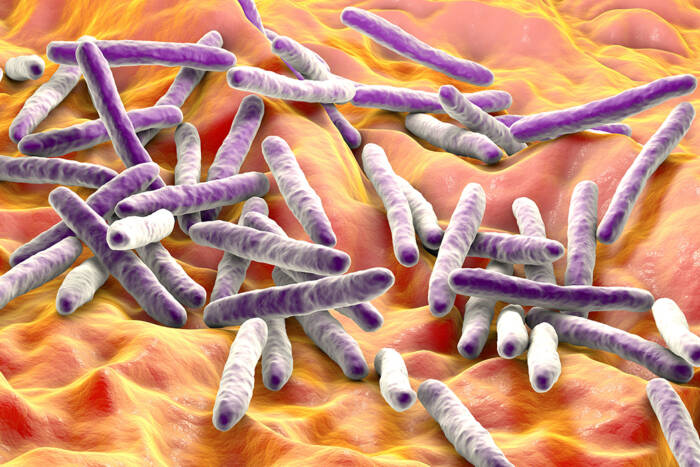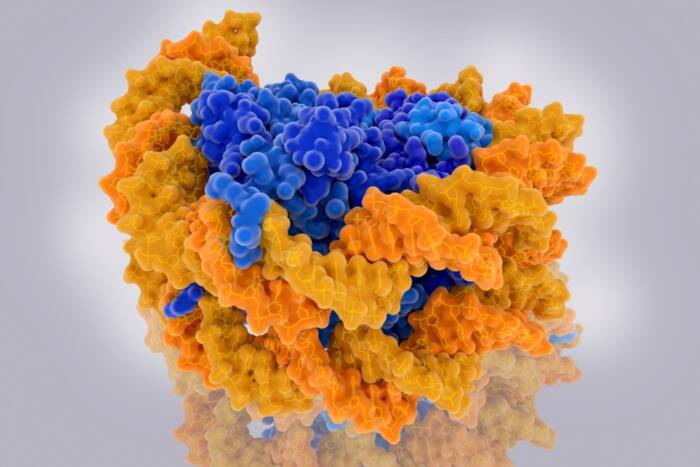Christian Münz to direct research institute in Zurich
by TALLEY HENNING BROWN
 Christian Münz, head of the Laboratory of Viral Immunobiology, has been appointed the new director of the Institute of Experimental Immunology — a research vehicle collaboratively run by the University of Zurich and the Swiss Federal Institute of Technology. Dr. Münz, who came to Rockefeller University as a postdoc 10 years ago and began his first independent lab here in 2003, was offered the new position in January 2007 and will begin moving his laboratory to Europe this August.
Christian Münz, head of the Laboratory of Viral Immunobiology, has been appointed the new director of the Institute of Experimental Immunology — a research vehicle collaboratively run by the University of Zurich and the Swiss Federal Institute of Technology. Dr. Münz, who came to Rockefeller University as a postdoc 10 years ago and began his first independent lab here in 2003, was offered the new position in January 2007 and will begin moving his laboratory to Europe this August.
An alumnus of the University of Tübingen, where he received a bachelor’s degree in human medicine and master’s and doctoral degrees in biochemistry, Dr. Münz came to the United States and Rockefeller University in 1998, to work as a postdoc in Ralph Steinman’s Laboratory of Cellular Physiology and Immunology. In 2001 he joined the faculty as research assistant professor, and two years later he was presiding over his own lab as assistant professor.
The Laboratory of Viral Immunobiology focuses on understanding the immune control of the Epstein Barr virus (EBV), an exclusively human virus of the herpes family that is transmitted in saliva and has been linked to several forms of cancer. EBV infects over 90 percent of the world’s adult human population, but only a minority of infections — usually associated with loss of EBV-specific immune control — are symptomatic. In these instances, the virus can lead to an array of devastating malignancies, including Burkitt’s lymphoma, Hodgkin’s disease and nasopharyngeal carcinoma. Dr. Münz’s primary goal is to explain and correct the lack of immune control in people who have EBV-associated tumors, but Dr. Münz is also studying the 90 percent of healthy EBV carriers. “If we can identify the component of immune control in these latent infections, we might be able to use it against other viruses,” he says. To both of these ends, Dr. Münz has begun preclinical testing of two possible EBV vaccines, using mice in which a human immune system has been reconstituted.
The research is driven by Dr. Münz’s fascination with the immune system’s ability to troubleshoot. “It’s an extraordinarily complex system. It has to identify foreign cells, transmit information about them to central areas of decision-making and then mold the appropriate responses. It is an intricate collection of mechanisms for problem-solving, evolution’s solution to protect a multicellular organism,” he says. “And it’s a very effective system, when it is triggered correctly, so if we could use this tool that evolution has come up with, then medicine could be much more refined than it is now.”
His new position at the Institute of Experimental Immunology will facilitate Dr. Münz’s research in two particular ways. First, the funding structure — with the majority of research funds as well as researcher salaries coming from the university — is well suited to longer-term projects, like those with humanized mouse models. Second, Dr. Münz will have access to patient samples from the University of Zurich’s research hospital. In addition to his administrative responsibilities as institute director, Dr. Münz will hold the title of “extraordinary professor,” the Swiss equivalent of a tenured associate professorship.
Dr. Münz will begin moving his laboratory to Zurich this August, and four of his current lab members will make the move with him over the following few months: students Rosa Barreira Da Silva and Till Strowig, and postdocs Monique Gannage and Sonja Meixlsperger. The laboratory in the Detlev W. Bronk Research Building will remain open for the duration of the move, until spring of 2009.
“Rockefeller is a very special place, and I will miss it greatly. The light load of administrative duties here and the high degree of scientific independence are things that are not easily replicated at other institutions and I certainly appreciate them. I will also miss the many collaborative relationships I have built here over the last decade,” says Dr. Münz. “I am glad I will be closer to my family, who are in Germany, but I will certainly miss New York City as well.”


